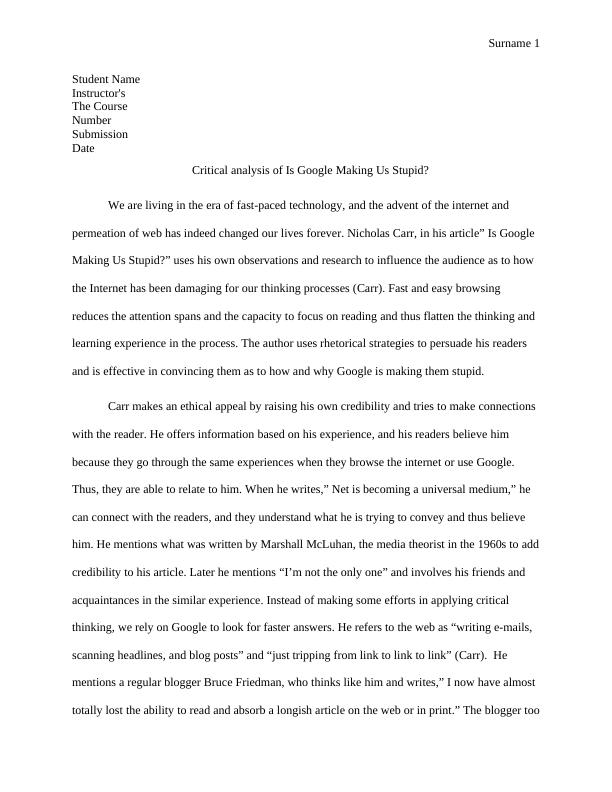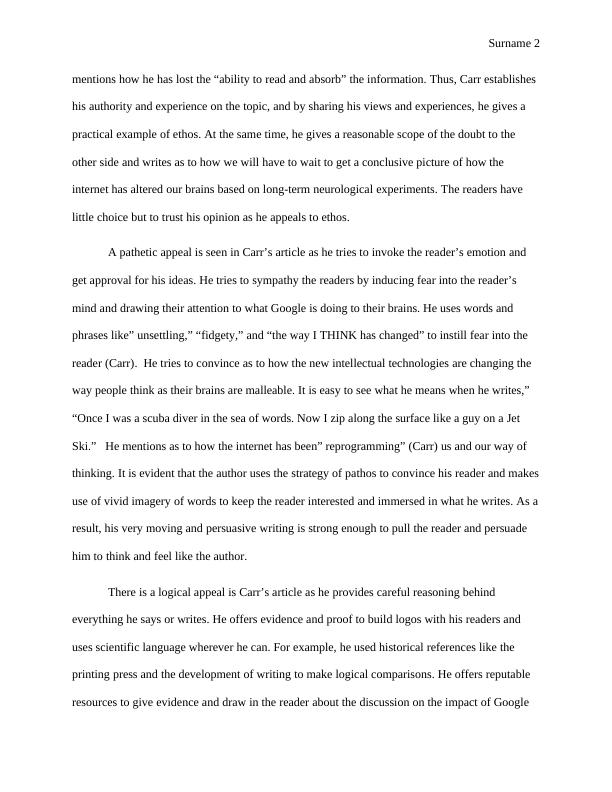Critical Analysis of Is Google Making Us Stupid?
4 Pages909 Words383 Views
Added on 2023-03-30
About This Document
This critical analysis explores the impact of Google on our thinking processes and how it may be making us stupid. The author uses rhetorical strategies to persuade readers and provides evidence to support their claims.
Critical Analysis of Is Google Making Us Stupid?
Added on 2023-03-30
ShareRelated Documents
End of preview
Want to access all the pages? Upload your documents or become a member.
The Power of the Media
|4
|905
|311
How Technology Affects Our Thinking and Processing of Information
|3
|951
|265
Is Google Making us Stupid - PDF
|6
|1242
|153
How the Privileged Prevent Other People's Children from Doing Well
|5
|740
|203


